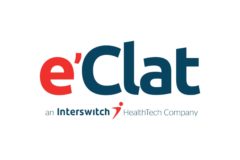Despite being the first point of call for many Nigerians, more than half of Nigeria’s private health facilities lack access to external sources of funding. Helium Health is addressing this through its product, HeliumCredit.
When Helium Health started digitizing electronic medical records (EMR) in Nigeria, Adegoke Olubusi, the CEO, discovered a market gap. Private health facilities, despite being the first point of call for many Nigerians, lacked access to external funding. More than half of the private healthcare facilities in Nigeria lacked access to external financing, according to data from Pharmaccess.
“We started to understand more deeply the gap that exists with healthcare financing, but it became more apparent to us how heavy and how wide of a gap this is. And we wanted to build a solution that could bridge that,” Olubusi told TechCabal. In 2020, Olubusi and his team launched HeliumCredit to give hospitals, clinics, pharmacies and diagnostics centers loans to buy medical equipment and medication and facilitate business expansions.
Using loans to scale is a critical part of any business strategy. Africa has a $66 billion health financing deficit, and this is mostly due to the lack of data. Investors and donors often rely on data-driven assessments to determine the impact and effectiveness of their contributions. Helium Health bridges the data gap by enrolling hospitals on HeliumOS—its core product which digitises electronic medical records. The EMR gathers information about the hospital’s finances and other metrics, which HeliumCredit uses to decide whether a hospital can receive a loan.
“With HeliumOS, we can see that there is this financing issue, and we saw that the lenders wanted to lend, and we said, how can we use this technology in the data system to digitize the end-to-end process?” Olubusi told TechCabal.
How it works
HeliumCredit provides easy access to credit for hospitals and healthcare institutions in an entirely digital process. Intending applicants apply for financing via HeliumCredit’s website and receive a disbursement of funds within 48 hours of approval. The average loan size is about ₦14m. Helium Health deploys loans through the Helium Wallet feature. The loan can then be repaid over a 12-to-24-month period.
For hospitals already enrolled on HeliumOS, Helium Health combines their existing data with third-party data from the banks. “So everything from their operations, to their inventory, to their stock, to their invoices and how it’s invoiced. Who pays and when they pay, and how they pay, or their insurance and their insurance claims,” Olubusi said, enumerating the type of data they typically gather. “So, when it comes to financial and operational data, there’s a lot of critical information that is already within the system. And that is what supports the decision and process.”
“For example, if a healthcare facility requests a loan of ₦50 million, we decide if the facility can pay back the loan based on the data supplied. So we might decide to give the user a ₦5 million loan or the same ₦50 million loan they requested based on the repayment capacity we derive from the data provided,” he added.
According to Olubusi, Helium Credit has disbursed loans worth $5 million to hundreds of facilities. “These loans have been critical to these healthcare facilities in acquiring medical equipment, scaling their operations, better quality of care, attracting more experienced talent, and restocking their inventory.” Olubusi claims that 70-80% of the healthcare facilities that obtained loans from HeliumCredit have returned to obtain more loans. Despite the risky nature of the credit-financing model, the majority of HeliumCredit’s clients do not default on their loans according to Olubusi. “In cases where healthcare facilities default on the payment of loans, we will offer a full cycle of monitoring of the facility and provide support to them: whether it is capacity development through education or financial training,” he said.
Driving health tech innovation in Africa
Helium Health secured a $30 million in investment from a Series B funding round in June this year. The funding round will be used to expand the reach of HeliumCredit. While interest in healthtech startup funding spiked in 2023—per data from The Big Deal— health tech startups witnessed a 7% year-on-year growth in funding, showing that credit financing is still in the nascent stage on the continent.
The YC-backed healthtech startup claims to be the widest-reaching EMR platform in West Africa, used across 230 facilities to care for over 1 million African patients.
Helium Health has great plans for expansion. According to the CEO, the company is set to launch HeliumCredit in Kenya in 2024 and will also increase its lending portfolio to 1,000 healthcare facilities by 2024, in partnership with the U.S. International Development Finance Corporation (DFC).





















